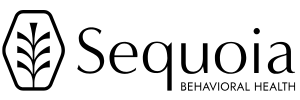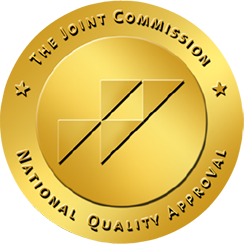Mesa, Arizona, United States
Sequoia Behavioral Health
Verified
Verified
This provider’s information has been quality-checked by Recovery.com’s Research Team for accuracy and completeness, including center verification through appropriate third-party organizations.
Provider's Policy
Sequoia Behavioral Health accepts most PPO commercial insurance plans which can cover 100% of treatment after deductibles. Verifying your insurance is free and helps us assess your financial options. Fill out the form below as you are able, and we’ll contact you about any additional information.
Estimated Cash Pay Rate
The cost listed here ($6,500-$28,000/month) is an estimate of the cash pay price. Center pricing can vary based on program and length of stay. Contact the center for more information. Recovery.com strives for price transparency so you can make an informed decision.
About Sequoia Behavioral Health
Sequoia Behavioral Health helps clients build lives rooted in purpose, stability, and self-worth through inpatient, day treatment, and intensive outpatient programs. They accurately diagnose and treat a wide variety of mental health disorders, including anxiety, bipolar, depression, post-traumatic stress disorder (PTSD), addiction, and co-occurring disorders. They intentionally keep their program small, so each client feels safe, seen, and understood.
Access a Wide Range of Therapies
Knowing many behavioral health problems revolve around past or present traumas, Sequoia places trauma treatment at the heart of their approach. All levels of care blend private and small-group therapy, address both symptoms and their root causes, and draw from a wide range of modalities. Examples include eye movement desensitization and reprocessing (EMDR), talk therapies, body-based and experiential approaches, mindfulness, multicultural therapy, and neurological interventions like neurofeedback.
Feel at Ease in a Place That Feels Like Home
Sequoia offers clients a home away from home, blending comfort and community in a quiet neighborhood. Clients stay in thoughtfully designed rooms—private or shared—with ample storage and lavender-infused mattresses. Therapy spaces, recreation areas, and cozy communal rooms are just steps away. With outdoor lounges, community excursions, and home-cooked meals eaten family style, Sequoia offers a warm, restful setting where daily life and healing happen side by side.
Confidently Embrace Life After Treatment
Sequoia staff begin aftercare planning early, walking alongside each client to ensure a safe, supported transition. When desired, they involve family in the aftercare plan. Alumni stay connected through free, on-site biweekly peer support groups, monthly sound-healing yoga, and a complimentary 90-day membership to a local recovery-focused yoga studio.
Read More
Insurance Accepted
Provider's Policy:Sequoia Behavioral Health accepts most PPO commercial insurance plans which can cover 100% of treatment after deductibles. Verifying your insurance is free and helps us assess your financial options. Fill out the form below as you are able, and we’ll contact you about any additional information.
Resolve Trauma in a Safe Environment
Sequoia recognizes that trauma is an underlying part of many other conditions. This philosophy helps them provide compassionate and effective treatment, including eye movement desensitization and reprocessing (EMDR), somatic experiencing, and neurofeedback. Every staff member is trained in trauma-focused treatment, and they place a special emphasis on understanding and resolving trauma in day-to-day programming.
Receive Stigma-Free Care for Schizophrenia & Bipolar
Sequoia specializes in treating bipolar and schizophrenia spectrum disorders with individualized care. They tailor therapy, education, and medication—at the lowest effective dose—to each client’s needs. Whether addressing mood instability or symptoms of psychosis, clients receive compassionate treatment designed to reduce symptoms and empower long-term stability.
Center Culture & Identity with Multicultural Therapy
Sequoia incorporates multicultural therapy to create a safe, inclusive space where clients’ identities are respected and central to care. By acknowledging how race, gender, sexuality, religion, income, and ability shape lived experience, they provide therapy that recognizes the impact of marginalization and affirms each client’s unique background, fostering healing through understanding, validation, and cultural awareness.
Use Play to Heal Body and Mind
Sequoia’s recreational therapy blends movement, nature, and creativity to support recovery. Through one-on-one and group activities like hiking, painting, or yoga, clients harmonize the mind and body. These positive experiences help build community, boost brain function, and replace negative habits with healthier ones—encouraging openness and emotional growth along the way.

Center Overview
Estimated Cash Pay Rate
Older Adults
Addiction and mental health treatment caters to adults 55+ and the age-specific challenges that can come with recovery, wellness, and overall happiness.
Executives
Executive treatment programs typically directly support the needs of people who manage businesses and may provide flexible schedules and office space to allow work during treatment.
LGBTQ+
Addiction and mental illnesses in the LGBTQ+ community must be treated with an affirming, safe, and relevant approach, which many centers provide.
Men and Women
Men and women attend treatment for addiction in a co-ed setting, going to therapy groups together to share experiences, struggles, and successes.
Midlife Adults
For adults ages 40+, treatment shifts to focus on the unique challenges, blocks, and risk factors of their age group, and unites peers in a similar community.
Mild Disabilities
Adults with mild physical or intellectual disabilities receive treatment catered to their specific needs in a safe and clinically supportive environment.
Pregnant Women
Addiction and mental health treatment meets the clinical and psychological needs of pregnant women, ensuring they receive optimal care in all areas.
Professionals
Busy, high-ranking professionals get the personalized treatment they need with greater accommodations for work, privacy, and outside communication.
Veterans
Patients who completed active military duty receive specialized treatment focused on trauma, grief, loss, and finding a new work-life balance.
Treatment Focus
You can admit to this center with a primary substance use disorder or a primary mental health condition. You'll receive support each step of the way and individualized care catered to your unique situation and diagnosis.

Care Options








Treatment
Specializations
Schizophrenia
Schizophrenia is a serious mental health condition that causes hallucinations, delusions, and disordered thinking.
Alcohol
Using alcohol as a coping mechanism, or drinking excessively throughout the week, signals an alcohol use disorder.
Anxiety
Anxiety is a common mental health condition that can include excessive worry, panic attacks, physical tension, and increased blood pressure.
Bipolar
This mental health condition is characterized by extreme mood swings between depression, mania, and remission.
Depression
Symptoms of depression may include fatigue, a sense of numbness, and loss of interest in activities. This condition can range from mild to severe.
Drug Addiction
Drug addiction is the excessive and repetitive use of substances, despite harmful consequences to a person's life, health, and relationships.
Licensed Primary Mental Health
Some primary care providers offer mental health diagnosis and treatment. This can prevent patients from developing more serious conditions.
Post Traumatic Stress Disorder
PTSD is a long-term mental health issue caused by a disturbing event or events. Symptoms include anxiety, dissociation, flashbacks, and intrusive thoughts.
Approaches
Evidence-Based
A combination of scientifically rooted therapies and treatments make up evidence-based care, defined by their measured and proven results.
Holistic
A non-medicinal, wellness-focused approach that aims to align the mind, body, and spirit for deep and lasting healing.
Personalized Treatment
The specific needs, histories, and conditions of individual patients receive personalized, highly relevant care throughout their recovery journey.
Strengths-Based
Providers using a strengths-based philosophy focus on the positive traits of their patients, creating a positive feedback loop that grows confidence.
Therapies
1-on-1 Counseling
Patient and therapist meet 1-on-1 to work through difficult emotions and behavioral challenges in a personal, private setting.
Meditation & Mindfulness
A practiced state of mind that brings patients to the present. It allows them to become fully aware of themselves, their feelings, and the present moment.
Trauma-Specific Therapy
This form of talk therapy addresses any childhood trauma at the root of a patient's current diagnosis.
Mindfulness Therapy
This ancient practice can be mental, emotional, and even spiritual. In meditation, you focus your attention on the present moment without judgement.
Attachment-Based Family Therapy
ABFT is a trauma-focused therapy that teaches you to form healthy relationships by rebuilding trust and healing attachment issues formed in childhood.
Art Therapy
Visual art invites patients to examine the emotions within their work, focusing on the process of creativity and its gentle therapeutic power.
Expressive Arts
Creative processes like art, writing, or dance use inner creative desires to help boost confidence, emotional growth, and initiate change.
Eye Movement Therapy (EMDR)
Lateral, guided eye movements help reduce the emotional reactions of retelling and reprocessing trauma, allowing intense feelings to dissipate.
Conditions We Treat
Pornography Addiction
A person with a porn addiction is emotionally dependent on pornography to the point that it interferes with their daily life and relationships.
Schizophrenia
Schizophrenia is a serious mental health condition that causes hallucinations, delusions, and disordered thinking.
Grief and Loss
Grief is a natural reaction to loss, but severe grief can interfere with your ability to function. You can get treatment for this condition.
Personality Disorders
Personality disorders destabilize the way a person thinks, feels, and behaves. If untreated, they can undermine relationships and lead to severe distress.
ADHD, ADD
ADHD is a common mental health condition caused by dopamine imbalance. Common symptoms include inattention, hyperactivitiy, and impulsivity.
Anger
Although anger itself isn't a disorder, it can get out of hand. If this feeling interferes with your relationships and daily functioning, treatment can help.
Anxiety
Anxiety is a common mental health condition that can include excessive worry, panic attacks, physical tension, and increased blood pressure.
Bipolar
This mental health condition is characterized by extreme mood swings between depression, mania, and remission.
Substances We Treat
Alcohol
Using alcohol as a coping mechanism, or drinking excessively throughout the week, signals an alcohol use disorder.
Benzodiazepines
Benzodiazepines are prescribed to treat anxiety and sleep issues. They are highly habit forming, and their abuse can cause mood changes and poor judgement.
Co-Occurring Disorders
A person with multiple mental health diagnoses, such as addiction and depression, has co-occurring disorders also called dual diagnosis.
Cocaine
Cocaine is a stimulant with euphoric effects. Agitation, muscle ticks, psychosis, and heart issues are common symptoms of cocaine abuse.
Drug Addiction
Drug addiction is the excessive and repetitive use of substances, despite harmful consequences to a person's life, health, and relationships.
Ecstasy
Ecstasy is a stimulant that causes intense euphoria and heightened awareness. Abuse of this drug can trigger depression, insomnia, and memory problems.
Heroin
Heroin is a highly addictive and illegal opioid. It can cause insomnia, collapsed veins, heart issues, and additional mental health issues.
Psychedelics
Hallucinogenic drugs—like LSD—cause euphoria and increased sensory experiences. When abused, they can lead to depression and psychosis.
Methamphetamine
Methamphetamine, or meth, increases energy, agitation, and paranoia. Long-term use can result in severe physical and mental health issues.
Aftercare
Experience
Personal Amenities
Amenities
Special Considerations
Healthy Meals are provided
Great food meets great treatment, with providers serving healthy meals to restore nutrition, wellbeing, and health.
Activities
Yoga
Yoga is both a physical and spiritual practice. It includes a flow of movement, breathing techniques, and meditation.
We love hearing about your treatment experience
Help individuals and families seeking treatment by sharing your first-hand experience with this treatment provider. Review Guidelines.




































